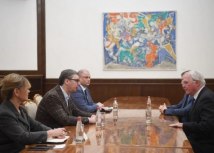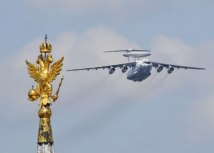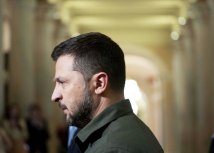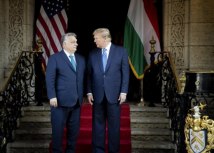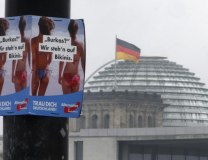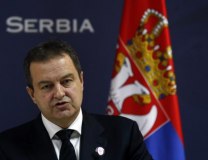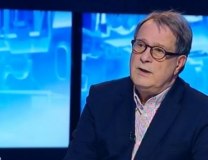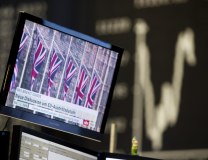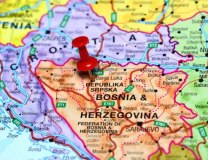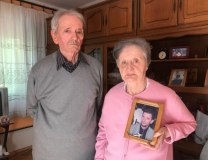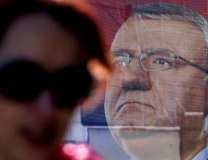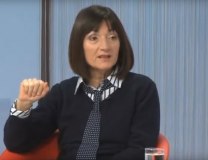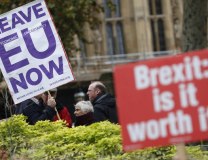14 words to prevent Ukraine becoming Syria
"The key to a lasting peace lies in control of that eastern frontier"
Timothy Garton Ash'Never again!' Europeans cried after World War I. Then it happened again. 'Never again!' Europeans cried after 1945; then it happened again. 'Never again!' Europeans cried after Bosnia, in 1995, and now it has happened again. I hope as strongly as I doubt that the Minsk ceasefire agreement, brokered by Angela Merkel's heroic efforts, will lead to peace. Yet even in the unlikely event that it does, look what we have already allowed to unfold.
Another European country has been torn apart by force. According to UN estimates, at least 5,400 people have been killed, some 13,000 wounded and 1.6 million driven out of their homes. Russia has formally annexed Crimea, part of a neighbouring sovereign state. Last week's 'Minsk 2' ceasefire agreement says Ukraine will regain full control of its eastern frontier with Russia only by the end of this year, and only if it holds its elections in and gives constitutional 'special status' to the Donetsk and Luhansk regions. It also says the Kiev government must go on paying pensions, salaries and 'utility bills' for these regions. Think about it. You only get to lock the back door to your house if you cede your sitting room to someone who is holding a gun to your head – and you must go on paying his bills.
Reasonable people can disagree about the best means to counter such shameless aggression, but at least we should have no illusions about what is happening before our eyes.Vladimir Putin deliberately confronts the European Union with a different, older and worse European way of doing politics. Might is right. Black is white. War is back on the high road and law limps to the ditch like a wounded refugee.
All this in a country whose territorial integrity Russia, the United States and Britain – but then, who gives a damn about Britain these days? – solemnly swore to uphold in the 1994 Budapest memorandum, in return for a newly independent Ukraine agreeing to give up one of the world's largest stocks of nuclear weapons. I quote: 'the Russian Federation, the United Kingdom of Great Britain and Northern Ireland and the United States of America reaffirm their commitment… to respect the independence and sovereignty and the existing borders of Ukraine'. Signed by Boris Yeltsin, Bill Clinton and John Major. Imagine the lesson this breach of trust will send to other nuclear or would-be nuclear powers: whatever you do, don't believe a word of any such assurances and don't give up your nuclear weapons.
Moscow's law of the jungle confronts Brussels' jungle of law. Who's winning? 'Russia is winning' answers the well-known American 'realist', John Mearsheimer. So what should we do about it? 'The West should seek to make Ukraine a neutral buffer state between Russia and NATO. It should look like Austria during the Cold War. Toward that end, the West should explicitly take European Union and NATO expansion off the table'. Well, thank you Professor Realist. Perhaps you would like to seal the deal yourself? We have the perfect location for your realpolitik summit: Yalta, where in 1945 Franklin D Roosevelt and Winston Churchill gave an ambiguous legitimacy to the Soviet occupation of eastern Europe. That's Yalta in now annexed Crimea.
What right have we to instruct other independent, sovereign countries to be neutral buffer states? Garry Kasparov, who knows Russia somewhat better than Mearsheimer, recently tweeted: 'the "realists" seem happy to condemn millions of Ukrainians to life as prisoners in occupied territory. In Europe in the 21st-century.' The other day, I spoke to Kasparov about Ukraine. He had been in Kiev to mark the 20th anniversary of that 1994 memorandum, and his take on this tragedy is bold and original, like his chess. He insists that this is not a conflict between Ukraine and Russia. Instead, he sees it as a contest between two Russias. With poetic exaggeration he calls them Kievan Rus and the Golden Horde.
Even if the opinion polls that suggest Putin enjoys sky-high popularity in Russia today are credible, we should not make the mistake of confusing Putin with Russia. Adolf Hitler also enjoyed huge popularity once, as did Slobodan Milosevic. Peoples can be led down disastrous paths, especially when skilful propaganda exploits deep national myths and hurts. A few years later, the nation wakes up and starts paying the price. To be anti-Putin is not to be anti-Russian. It is to be more long-sightedly pro-Russian: to support those embattled Russians who represent the other Russia.
Notice that Putin is violating the very principle that he has always insisted should be the foundation of international relations: the unconditional sovereignty of states. But, you may exclaim, what humbug for countries that invaded Iraq to excoriate others for violating sovereignty! To which the answer is: yes, the Anglo-American invasion of Iraq was wrong, legally, morally and strategically, but two wrongs don't make a right.
In Syria, others may point out, we have killing fields that make Ukraine look almost peaceful and the UN counts a staggering 3.8 million refugees. What is the West doing about that? Are Arab lives worth less than European ones, Muslim than Christian? Every other week, I wake up thinking 'shouldn't I write about Syria?' But quite apart from the fact that I know much less about the Middle East than about Europe, what I do learn from the experts does not point to any clear way forward. There seem to be just too many groups on the ground locked in conflict and backed by too many external powers (including Russia, supporting Bashir al-Assad).
Here, by contrast, for all the complexity of Ukraine, there is a way forward. It can be summarised in 14 words: Putin must withdraw his forces and Ukraine have full control of its eastern frontier. So, unlike in Syria, the key lies in a single political actor changing his behaviour. To be sure, this would not overnight stop angry separatists fighting for their Donetsk People's Republic. In eastern Ukraine, as in Bosnia, as in Syria, the radicalising brutality of war has turned neighbours into enemies. Great statecraft and imagination would then be required from Kiev to re-build an effectively federal Ukrainian state, one in which people who identify themselves as Russians could again feel reasonably at home. But the path to any lasting peace starts with those 14 words.
Timothy Garton Ash is Professor of European Studies at Oxford University, where he currently leads the freespeechdebate.com project, and a Senior Fellow at the Hoover Institution, Stanford University. His latest book is Facts are Subversive: Political Writing from a Decade Without a Name
